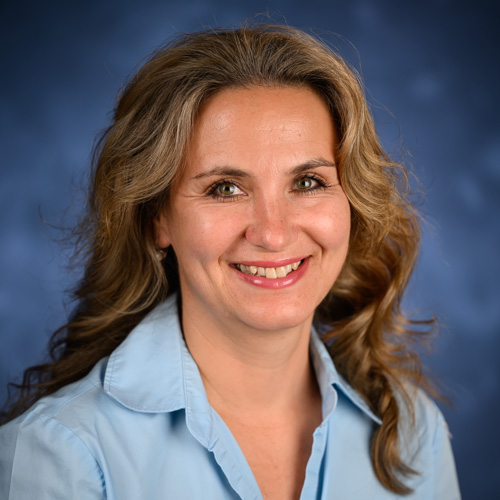Residency: Equine Internal Medicine
The NC State Veterinary Medicine Equine Internal Medicine Residency Program is intended to provide advanced clinical and investigative training in equine internal medicine. The duration of the program will be three years and conform to the requirements of the American College of Veterinary Internal Medicine (Large Animal) residency training program. The resident can work with their advisor to tailor the professional development time to emphasize a research track if an academic career is anticipated or a clinical track if a private practice career is anticipated. Elective rotations in other specialty areas (theriogenology, food animal medicine, etc) may be taken. Externships to obtain intensive training in specific areas of large animal internal medicine (neonatology, food animal medicine, etc) are also available.
Program
Clinical Duty
Clinical duty consists of primary responsibility for patients admitted to the equine medicine service. This will consist of outpatients seen during daily receiving, emergency patients admitted to the service during the day, and emergency patients admitted at night and transferred to the service in the morning. A senior clinician will serve as co-clinician on all cases under the care of a resident.
Professional Development
Professional development consists of scholarly activities that develop clinical and writing skills, research activities, and studying for the ACVIM board examination. This time is designated for study, research, and writing. Elective rotations in radiology, ultrasound, and anatomic/clinical pathology are to be taken during professional development time. Vacation (10 days per year) should also be scheduled during this time.
Teaching Requirements
When on clinical duty, the residents must take an active role in student education aside from case management through topic discussions, assignments, and procedure supervision. The residents will also participate in teaching 1-2 labs for veterinary students. These labs are designed to teach examination and restraints techniques, diagnostic procedures, imaging, etc. in horses.
Required rounds
- Large animal internal medicine rounds, weekly, Wednesday at 8AM. These rounds are designed to provide topic reviews for ACVIM boards preparation and critical discussion of current literature related to large animal internal medicine.
- Equine and Food Animal Journal Club, weekly, Tuesday and Friday 8AM. These rounds are designed to provide an opportunity to participate in critical discussions of current literature related to equine and food animal medicine.
- House Officer Seminars, weekly, Thursday at 8AM. Each resident will give one of these during the residency program.
- Imaging rounds, monthly, Monday 9AM. These rounds are designed to provide an opportunity to discuss interesting cases with the radiology service.
Research Projects
At least one original research project is required for each resident.
Manuscripts
Publication of at least one peer-reviewed manuscript is required of each resident.
Meeting presentations
At least one presentation at a state, national or international meeting is expected of each resident. Ideally, this will be a presentation of a research abstract.
Professional Development
This time is designated for study, research, and writing. Present a plan for each PD block to your advisor prior to each block.
Travel
The resident is expected to attend at least two scientific meetings during the residency. Money may be available from the department for travel to scientific meetings. See your advisor to access these funds.
Committee and Evaluations
The resident will choose their advisor (one of the ACVIM-LAIM diplomates) within the first few months of starting the residency and develop a committee with the help of your advisor by the first months of the residency. Each committee consists of three members, one outside the discipline. Each resident is evaluated by the equine faculty and staff at least twice a year. This information will be summarized and presented to the resident during a biannual meeting with the resident committee. This committee will also review progress toward boards and the completion of research projects and manuscripts.
ACVIM board certification
You must register as a candidate with the ACVIM to pursue board certification within 90 days of starting your residency. Consult the ACVIM website for information regarding registration and familiarize yourself with the requirements and timelines for successful progress through the board certification process.
Leadership and Faculty
Apply
This residency participates in the American Association of Veterinary Clinicians’ (AAVC) Veterinary Internship and Residency Matching Program (VIRMP) when a position is available.
Information for International Applicants
Preference is given to applicants who have graduated from a college that is accredited by the American Veterinary Medical Association. If you wish to apply for an internship or residency program things to keep in mind:
- Have your degree translated and evaluated by a reputable company. Options include: Josef Silny & Associates, Trustforte Corporation, and World Education Services
- Some programs require the TOFEL exam to qualify for a internship or residency position.
- Most foreign interns and residents are appointed to H-1B visas.
- To ensure that a foreign national candidate has the H-1B visa at the start of their program the candidate will be asked to pay for the premium processing filing fee of $1,225 USD, if necessary.
- Getting a visa takes between four and six months if the visa is expedited it takes approximately 15 business days.
- Take the initial steps and apply for The Educational Commission for Foreign Veterinary Graduates (ECFVG) certification program is accepted by all state veterinary regulatory boards and the federal government as meeting, either in part or full, the educational prerequisite for licensure or certain types of employment, respectively.




